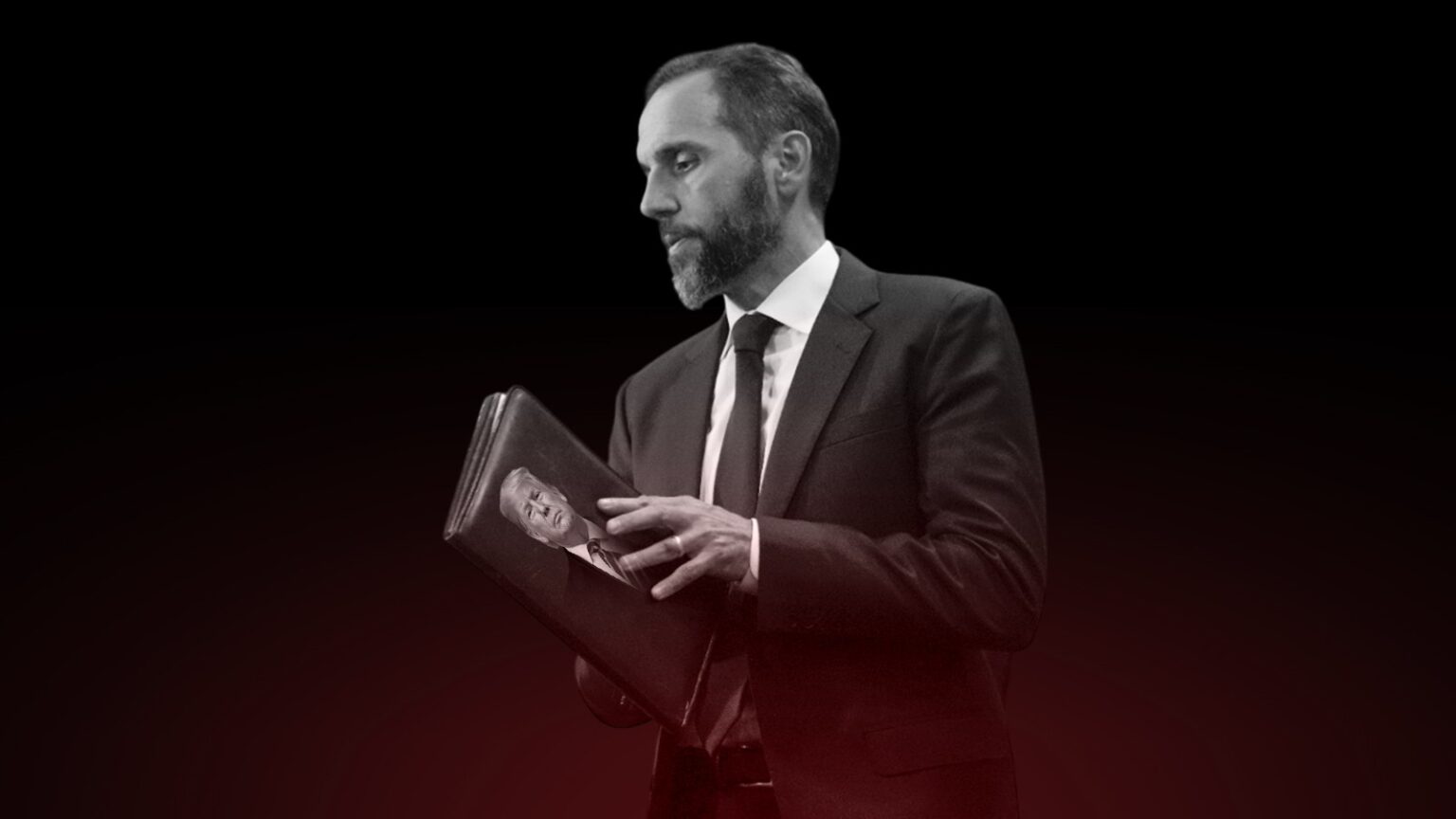Special Counsel Jack Smith filed an updated indictment on Tuesday against Donald Trump to bolster the historic election obstruction case. This move follows a Supreme Court decision that granted broad immunity to presidents for their official acts and sharply criticized Smith’s approach.
The revised indictment comes as a crucial deadline approaches. In about 10 days, the Justice Department’s “60-day rule” will take effect, preventing any new charges against the former president, who is once again the Republican nominee for the White House.
In a notice to the U.S. District Court for the District of Columbia, Smith stated that the new indictment was filed “by a new grand jury that had not previously heard evidence in this case” and that it “reflects the Government’s efforts to respect and implement the Supreme Court’s holdings and remand instructions.”
Trump still faces the same four charges related to his alleged efforts to overturn Joe Biden’s 2020 election victory. Smith announced he would not seek a new arraignment for Trump on the revised indictment and plans to coordinate with Trump’s defense team this week to schedule new pretrial hearings.
In response, Trump took to social media, accusing the special counsel of trying to “resurrect a ‘dead’ Witch Hunt in Washington, D.C., out of desperation.” He called the new indictment “ridiculous” and demanded its immediate dismissal as an attempt to interfere with the upcoming election.
Even a revised indictment could lead to prolonged legal battles between the special counsel and Trump’s attorneys over what charges or evidence can be presented, potentially requiring further decisions from the Supreme Court.
Anthony Coley, a former spokesperson for Attorney General Merrick Garland, described the updated indictment as making “minor tweaks to comply with a dubious Supreme Court ruling.” He maintained that the prosecution’s narrative remains largely the same: “Trump ignored the facts and bypassed the law to overturn the will of voters. This revised indictment tells the full story within the parameters set by the Supreme Court’s ultra-conservative majority.”
The new indictment no longer accuses Trump of attempting to compel his Justice Department to conduct sham investigations into election fraud or pressuring state legislators to appoint fraudulent electors. The Supreme Court ruled that interactions between a president and their Justice Department are considered official acts, which are immune from prosecution.
As a result, the revised indictment does not mention “Co-Conspirator No. 4,” who was identified in the original document as former Justice Department official Jeffrey Clark.
Instead of naming six uncharged co-conspirators, the updated indictment now lists five, most of whom are lawyers who advised Trump on overturning the 2020 election results. Smith clarified that these individuals acted in a “private” capacity, differentiating their actions from official government duties.
The new indictment is carefully aligned with the Supreme Court’s critique of Smith’s approach and the majority’s conclusion that a president or former president cannot be prosecuted for official acts. The court also ruled that evidence of such acts generally cannot be used against a former president in a criminal trial. Consequently, the indictment emphasizes more clearly that Trump and his co-conspirators allegedly acted outside of their official roles.
The revised language in the indictment states, “These co-conspirators included individuals who were not government officials during the conspiracies and who were acting in a private capacity.”
While making these adjustments, Smith removed numerous allegations from the indictment, including many instances where Trump allegedly interacted with federal officials and his White House staff.
For instance, when detailing how Trump allegedly pressured Georgia officials to overturn the election results, the revised indictment omits a reference to Trump’s tweet calling Georgia officials “terrible people” despite his chief of staff advising him that they were acting properly. This detail was likely removed because conversations between Trump and his chief of staff could be considered an official act and, under the Supreme Court ruling, inadmissible as evidence.
The adjustments made in the new indictment are also evident in how it describes Trump’s conduct during the January 6, 2021, Capitol riot. Both indictments outline how Trump sought to exploit the violence to delay the certification of the election. However, the revised indictment omits references to Trump ignoring his advisors’ pleas to instruct the rioters to leave and excludes a phone call between Trump and then-House Minority Leader Kevin McCarthy (R-Calif.). It continues to mention unnamed co-conspirators attempting to communicate with U.S. senators.
The revised indictment makes it clear that Smith and his team believe the Supreme Court’s definition of presidential immunity does not cover Trump’s conversations with state officials regarding the election. It includes several alleged discussions between Trump and state officials, including a meeting with Michigan state legislative leaders in the Oval Office on November 20, 2020.
The adjustments and deletions made in this indictment could have implications beyond this case. Trump is currently appealing his New York conviction for falsifying business records, arguing that some evidence presented to the jury included discussions with White House staff that should be deemed official acts under the Supreme Court’s recent ruling.
The judge in the New York case is expected to decide next month whether the Supreme Court ruling should affect the hush money trial. Trump’s lawyers are likely to argue that the revisions in Smith’s indictment support their claim that the New York conviction should be overturned.



